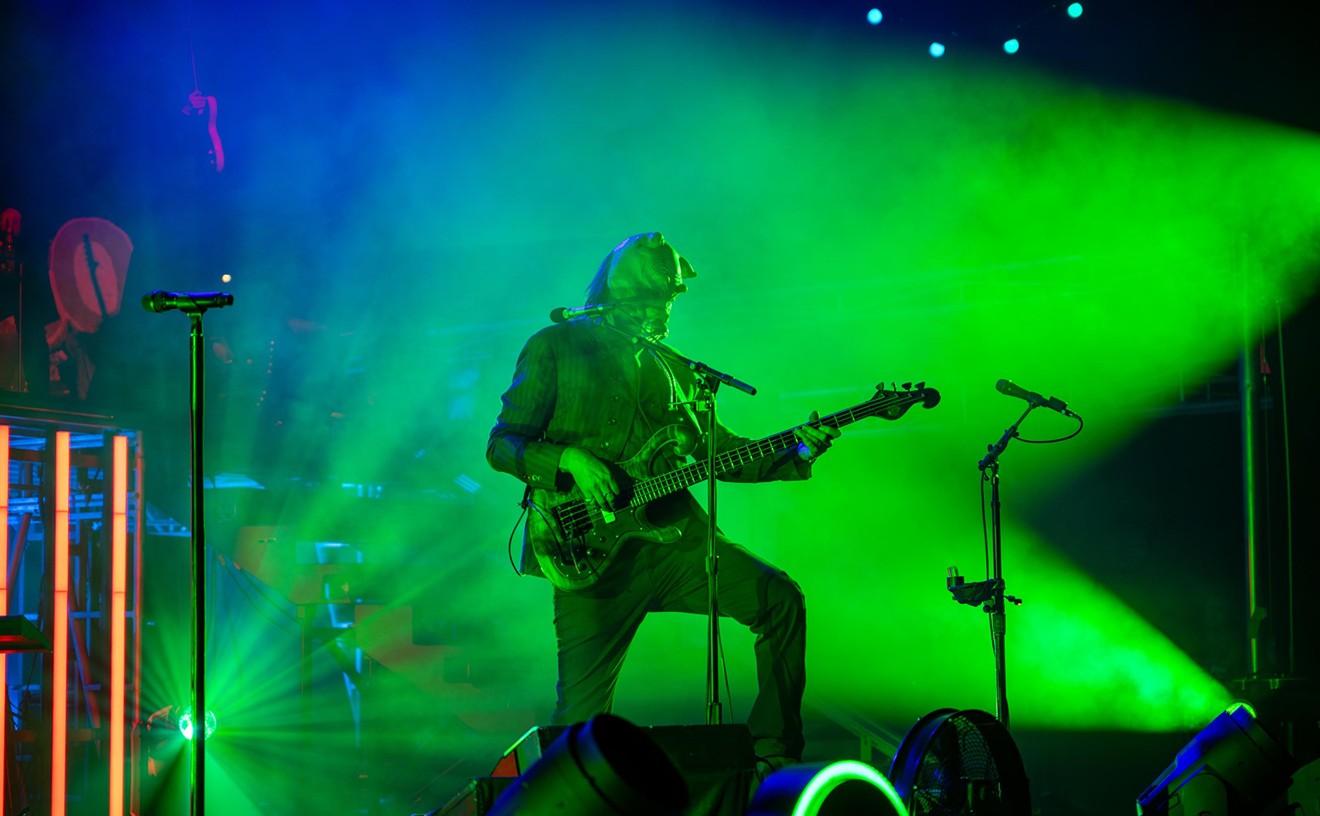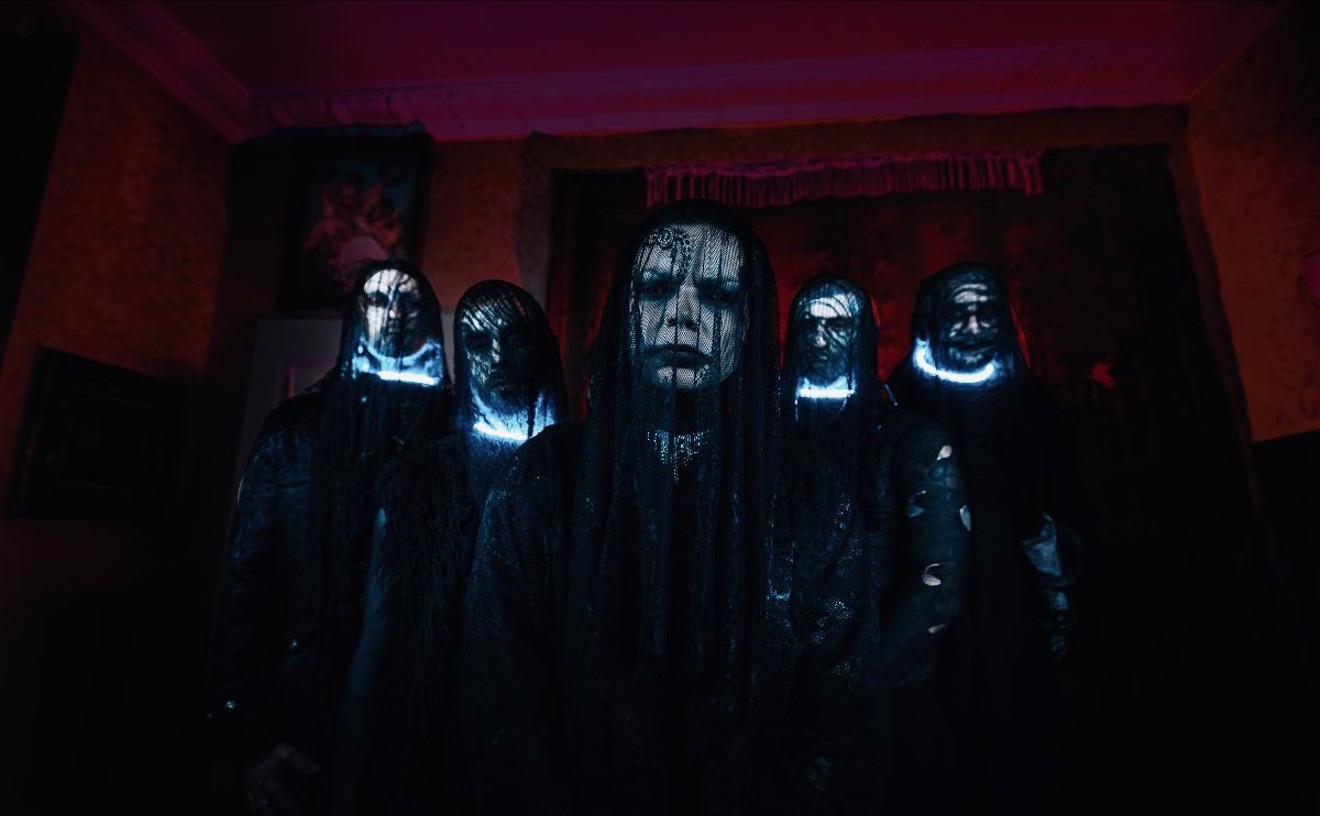They Might Be Giants is one of the most well-known bands from that pre-alternative-rock period in the 1980s when there wasn't yet an all-encompassing umbrella term for music that wasn't punk, wasn't mainstream pop, wasn't quite straight-ahead rock but was accessible. The band's self-titled 1986 debut album was a hit on college radio, and the single “Don't Let's Start” garnered the band a good deal of airplay on MTV. No mean feat for a band whose music, as well-written and charmingly performed as it was, seemed unusual to many music critics of the day. The group's unique, smart pop songs and rich imagination have managed to endure and find new audiences since.
Founders John Flansburgh and John Linnell met as youths in Lincoln, Massachusetts, and wrote songs together in high school before going to different colleges. But both found themselves living in New York City in 1981, in the same building in the Park Slope neighborhood inofBrooklyn. At that time, NYC was still recovering from the economic collapse of the late '70s, and Brooklyn was little like it is today.
“When we moved there, things were pretty bad in that classic Fort Apache , The Bronx kind of way,” recalls Flansburgh. “All the subways were completely covered in graffiti, and garbage removal was really irregular. Lots of things that make cities normal seemed to have left long ago. Then crack came in, and that made things weirder. I didn't know that New York would get nicer. I thought that was the kind of place New York was: this Blade Runner kind of future world where there's no new construction and things are slowly falling to bits.”
Amid that urban decay, Flansburgh and Linnell found their way as musicians. In 1981, Linnell was still playing keyboards in the new-wave band the Mundanes, but the following year he formed They Might Be Giants with Flansburgh. At that time, no wave was the big thing in underground music in New York City, though the fledgling They Might Be Giants didn't necessarily fit in with that gloriously noisy and wildly inventive but challenging movement, either, even though it played many no-wave-oriented venues, such as Pyramid Club and ABC No Rio.
“It sounded the way New York looked, so we could relate to it,” offers Flansburgh. “But I don't think we're particularly good at the things that that kind of music draws on. When we started, we had these sort of shouty, screamy songs in the set that had improvisational aspects to them. They got a perfectly good response from the audience, but I don't think we felt it was our personal strength. So it was a transitional sound for us.”
In 1985, after Linnell suffered a bike accident and Flansburgh's apartment was robbed, the band couldn't perform live, so the two recorded songs onto Flansburgh's answering machine, an old Record-A-Call with the ability to record an essentially unlimited amount of messages, making it possible to record a two- to three-minute song that people could call in and listen to. Each week, anyone with the phone number could call in and listen to a different song. The project, which the band advertised in the early days by posting fliers, first ran in 1985 and ended in 2008, but was resurrected in 2015.
“One of things interesting about that project was that it wasn't at all clear to many people, or so it seems, that there was a rock band behind it,” muses Flansburgh. “Some people just thought it was kind of a project. Hearing a song played over a telephone is a very different experience from hearing it on the radio. I don't remember what the circumstance was, but someone clearly thought that They Might Be Giants the band that played rock clubs was different from the thing that was Dial-A-Song. That was an eye-opener for me.”
“The big problem was that the beep was the trigger to make it rewind,” reveals Flansburgh. “So if we had any sustained notes, it would make the thing go back. So we had to stutter the input going onto the tape, like a hip-hop DJ might make a note stutter to stop the tape from returning. Or we would just have to cut the note short. It was a constant problem, and such an unmusical challenge to have presented to it: Make music, but with no sustained notes.”
In the '90s, TMBG found commercial success with its 1990 major-label debut, Flood, and has been a staple of alternative rock and a hit with fans of left-field pop ever since. Linnell and Flansburgh have recorded multiple children's albums and have kept up with changes in the way that music is made and how it is presented to existing and potential fans while remaining true to their creative vision. Thus the renewed Dial-A-Song became a website that played a YouTube video without the navigating visuals to let you know that it is, in fact, what you're seeing. It's far more practical than going back to analog. Out of that project over fifteen months, TMBG has culled the best songs written for Dial-A-Song for three albums, 2015's Glean and Why? as well as the newly released 2016 album Phone Power. Then the relentlessly prolific band will take something resembling a break for a year or more.
“We're actually going to start working on the next thing when we get back,” concludes Flansburgh. “To be perfectly honest, we're probably going to do it the opposite way from what we just did in doing all these records very much in public, doing a song a week. This one we're going to hide for a while and then present the whole thing in a big, glorious, surprisingly inspired lump.”
And evening with They Might Be Giants at 7 p.m. doors / 8 p.m. show on Wednesday, March 23, at the Ogden Theatre, 935 E Colfax Ave, 303-832-1874, $26.50 adv. /$30 day of show.
[
{
"name": "Air - MediumRectangle - Inline Content - Mobile Display Size",
"component": "12017618",
"insertPoint": "2",
"requiredCountToDisplay": "2"
},{
"name": "Editor Picks",
"component": "17242653",
"insertPoint": "4",
"requiredCountToDisplay": "1"
},{
"name": "Inline Links",
"component": "18838239",
"insertPoint": "8th",
"startingPoint": 8,
"requiredCountToDisplay": "7",
"maxInsertions": 25
},{
"name": "Air - MediumRectangle - Combo - Inline Content",
"component": "17261320",
"insertPoint": "8th",
"startingPoint": 8,
"requiredCountToDisplay": "7",
"maxInsertions": 25
},{
"name": "Inline Links",
"component": "18838239",
"insertPoint": "8th",
"startingPoint": 12,
"requiredCountToDisplay": "11",
"maxInsertions": 25
},{
"name": "Air - Leaderboard Tower - Combo - Inline Content",
"component": "17261321",
"insertPoint": "8th",
"startingPoint": 12,
"requiredCountToDisplay": "11",
"maxInsertions": 25
}
]











